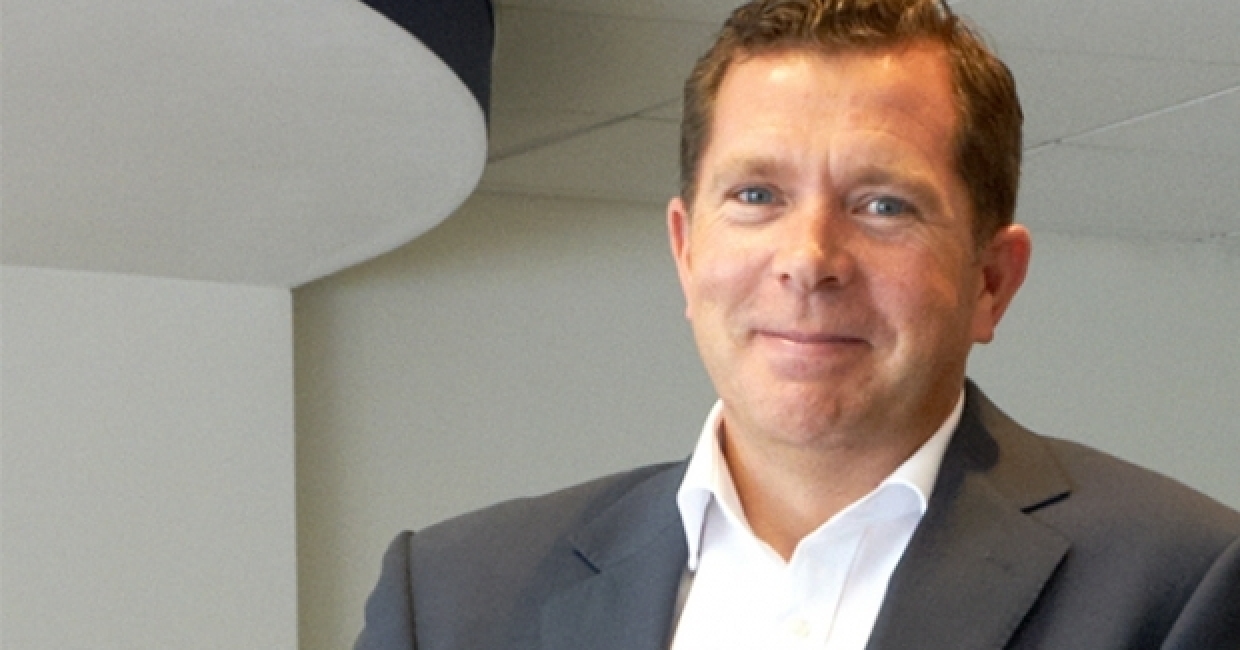Can any of us truly say we’ve never felt the lure of an ivory tower? As a business grows, the distance between its principals and their employees and customers naturally grows – but losing sight of day-to-day concerns can lead to being dangerously out of touch with commercial realities. Despite having many years of retail experience under his belt, when Mike Logue was appointed to direct Dreams’ recovery he knew that a reversal of fortunes could only be achieved if he understood the business from the ground up. Paul Farley reports …
Last year, I sat down with CEO Mike Logue at Dreams’ ‘Bedquarters’ in High Wycombe, to discuss the company’s recovery following its purchase from administration.
Change was evident everywhere – in the stores, the products, the sales initiatives, and even in the company’s philosophy, which was now driven by a manifesto based on quality and honesty, and an ambitious aim to put ‘a Dreams bed in every home’.
Profitability is central to these priorities, and the Dreams of today is fast reaping the benefits of a fresh approach. In 2013 – the year of its buy-out – Dreams posted a loss of £3.6m, yet turned this around in 2014, delivering a profit of £6.9m. For 2015, the retailer expects to confirm this positive trend, achieving 15% like-for-like sales growth and expecting profits to exceed £18m (discover the outcome here).
Of course, a general recovery in the market played its part in this turnaround, but the results are, in part, testament to Mike’s efforts. With a resume encompassing management roles at Gamestation, Asda, Mothercare and Phones4u, as well as 11 years of store experience at Marks & Spencer, Mike’s retail credentials certainly check out – and one would completely understand if, upon his appointment by new owner Sun European Partners, he had decided to occupy that ivory tower and direct proceedings from afar.
However, Mike’s approach – informed by an impressive 26 years in retail – was instead to throw himself into the business at every level, in an attempt to truly understand the brand.
Whether that entailed spending time on the shopfloor talking to sales staff and customers, shadowing the production processes at Dreams’ UK factory, or even tagging along with home deliveries, Mike appreciated that only through experience and interaction could he hope to identify the best way forward for the business.
I spoke to Mike upon his return from a visit to several mattress production facilities in the US, and, latterly, a store tour across the Midlands …
It sounds like you’ve clocked up plenty of miles …
I’ve spent a lot of time with manufacturers, trying to understand what we should be doing and selling, and what mistakes have been made. I’m clearly playing catch-up – everyone
I’m meeting in the industry has tens of years of experience – but there’s some exciting stuff taking place, both in the UK and outside it.
There are some very tough markets in Europe – and you don’t get much tougher than the US in terms of competition – in which you have to be very good to survive. If I can learn just one or two things from each trip, it’s time well spent.
I spent the last two days on my own travelling up the A1 to Stevenage, Peterborough, Biggleswade, Lincoln, Nottingham and Mansfield. The next day I visited Loughborough, Rugby, Milton Keynes, Coventry and Leicester. I’ve also checked out our competitors’ stores.
I’ve learned very little strategy sitting behind a desk. I can’t remember ever sitting round a table with a pen and paper and coming up with a new idea. My career began on the shop floor, and I’m firmly of the view that the people on the shop floor pay my wages – not the other way round.
All the strategic changes we’ve made at Dreams, everything we’ve done differently, have come from time spent in stores, in delivery vans, on the factory floor, and travelling across the country.
“I’ve learned very little strategy sitting behind a desk”
These visits allow me – without an entourage – to talk to people, and to listen to what we’re really doing. The longer I spend with our teams, the better they get to know me, and the more they tell me – what we’re doing well, what we’re doing badly, and, most importantly, what we need to do differently.
I started out in Perth Marks & Spencer’s in August 1989. I can remember the people that helped me back then, in particular my first supervisor – I felt she knew more about what needed to change in the company than most of the directors that came to visit.
Yesterday, I was challenged by some store staff who wanted a greater role in changing their ranges – they know their local customers better than we do, so I’ll make sure those changes take place.
I also engage customers in store, and through our Pillow Talk website – a thousand customers post feedback here each week, and I’ll probably read 30-50 specific items weekly, positive and negative.
Do you see yourself chiefly as an innovator?
I’m just making sure I’m where the customer’s at – that I never get too far away from them, or from my colleagues.
I can see how that might be a bit intimidating for some staff …
It took a long time for some of them to get used to it. In the office – particularly because of the horrendous times that this office has been through – I don’t think people believed my approach for several months. That said, in the stores people opened up within a couple of hours, thanks to my background – they recognised that I knew how tough their job was.
Did you announce your management plan formally?
Not really – but, on the first day, I did get everyone together in the atrium. In hindsight, they might have thought that everyone was going to be sacked – I didn’t realise that this was a location that had only ever been used for bad news.
Now, I get them together every week, and a level of trust is building. There had been no pay rises here for four years, and no bonuses for five. We put the first pay rise in – it wasn’t huge – and we awarded a 10% bonus at the start of 2015. In the past, bonuses had been spoken about, but not paid. That generated a huge lack of trust. One of our core values is ‘we do what we say we’re going to do’ – and at this point, our staff started to believe us.
That mantra comes from the shops. Managers and sale staff were saying to me: “Mike, whatever you do, will you just do what you say you’re going to? You don’t need to tell us stuff that doesn’t happen, just tell us the truth.”
“I felt that my first supervisor knew more about what needed to change in the company than most of the directors that came to visit”
There was definitely a lack of trust and respect in this building. I think we still have some of that around the organisation because we’re still emerging from what was a difficult situation, but I think we’re trying to go in the same direction.
We carried out an engagement survey in January 2014 and only 50% of the employees completed it. We did one recently, and 90% of the employees completed it – the level of engagement is off the scale.
I hear you’ve also spent time with delivery staff?
We’ve got roadshows where we speak to every manager, driver and driver’s assistant – but my most profound experience was spending time out on the road myself. I learned that we needed new vehicles, and better product management ahead of deliveries.
I’m aware that we have people who earn below a living wage in this business, and that happens in our distribution network a lot more than it does in our shops. My team and I are focused on trying to improve that as best we can – within the constraints of a business that needs to be more profitable.
The reality of what our delivery drivers do, and how important the last mile of getting our product delivered into people’s homes, is a very vivid memory for me. I couldn’t believe that our delivery team spent longer with the customer than our salespeople do – taking the bed into someone’s home, fitting it, building it, removing rubbish, taking the old bed out …
What was your first home visit like?
One that really strikes me was delivering a bed up five flights of stairs in central London with no lift. We were delivering the bed, but they’d already bought the mattress from an online competitor, and I was rather frustrated that I was just delivering the frame! I had a conversation with the customer about why his experience in store had driven him to buy online – he just didn’t feel that the service had been good enough.
I then visited some really challenged locations – I never had any idea that there could be so many beds in so few rooms. I also remember delivering a mattress to an older lady, who wanted our help moving multiple pieces of furniture round her house – the guys were on a time limit, but equally they had to help the customer.
I was the one calling up the customers to promise time slots – and then having to call them again to tell them we were running late because of traffic. It all hit home – how heavy these products are, and how the only safe place to park can be quite a long way away from the delivery location.
Do you have any stand-out memories of your early interactions with store staff?
When I first joined I spent a few days in Scotland, visiting every store. On my second day in the organisation, I was in Clydebank, Inverness, Aberdeen and Dundee. I remember turning up and people wondering who the hell I was! I don’t think they’d had anyone visit Scotland before that.
So much of what we’ve tried to do in the company came from those first few days – what those retailers shared with me was just so accurate when it came to what needed to change.
Do you feel that the previous management team had lost touch?
I really feel for them. From everything I hear, they were really good people, but when you’re being managed by a bank, and there’s so much emphasis on the financials, it’s understandable that you would steadily get further and further from the customer and from your colleagues.
When you’ve got multiple shareholders or financial groups involved in the future of an organisation and things are getting difficult, I can totally understand you losing touch – from what I can see they did an excellent job, up until the point at which the debt levels were so high that they were probably spending as much time working on reducing the debt as they were on the future of the company.
“When you’ve got multiple shareholders or financial groups involved in the future of an organisation and things are getting difficult, I can totally understand you losing touch”
We don’t operate that way with our owners. Sun Capital have turned around so many businesses, in the retail sector and others, and they’ve invested long-term in this sector. They’re constantly challenging us to improve, but they’re enormously supportive.
How long did it take you to share Sun’s confidence in the company?
When I had been here about eight weeks I held a conference – the first they’d had in years – where I stood up on stage and explained my plan for Dreams. I talked about an improved culture, making and buying better products, inspiring more customers to buy from us in-store and online, and becoming a more sustainable, profitable business – most importantly, I explained the importance of being good enough that we’re recommended at every level.
I knew at three o’clock the next morning that we could do this, because – although I don’t drink – I had been kept up by so many passionate people telling me how they felt about the company, how we could improve, and how they were determined to make it succeed.
“All the strategic changes we’ve made at Dreams, everything we’ve done differently, have come from time spent in stores, in delivery vans, on the factory floor, and travelling across the country”
This was a group of people that actually wanted to work here, who would want to make improvements, and make it a better place. Of course, some didn’t – and that wasn’t a problem, things change and people move on – but on the whole I saw that we had some great people here, and I knew at that moment that this business had every chance of succeeding.
How close are you to realising this success?
I’ve spent 26 years working in retail. I’ve learned to work with factories, and I’m learning to work with distribution. If you’re running a business that sells product, of course you’ve got to be close to the people that actually make and deliver it. But there’s always more to achieve. The day you think you’ve succeeded is the day you’ve failed.
Our manifesto talks about winning. I’m passionate about winning, but you’ll never hear me say we’ve won.
This article was published in the January 2016 issue of Furniture News magazine. That month also saw Dreams sponsor the 2016 edition of The Furniture Awards.












